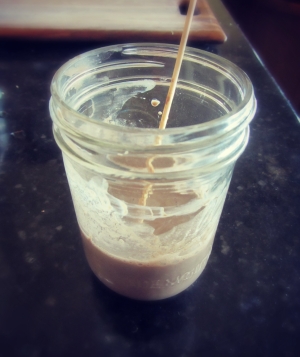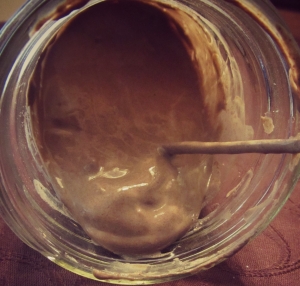Rhassoul Clay
 Rhassoul clay originates in Morocco. The name rhassoul comes from the Arabic word "rassala," which means "washing."
Rhassoul clay originates in Morocco. The name rhassoul comes from the Arabic word "rassala," which means "washing."
Rhassoul clay can be used as a soap, a shampoo, and a skin conditioner. Rhassoul contains more trace minerals than other clays. The silica, magnesium, potassium, and calcium work together to detoxify the skin and hair by exchanging themselves for toxic compounds. The toxins are thus replaced with the nourishing trace minerals.
With its rich history in beauty care, rhassoul clay makes a wonderful natural addition to any personal care regimen. Using it for the first time, however, can be a bit daunting. Here are directions and recipes to help you venture into the benefits of rhassoul clay.

Prepare ahead by hydrating your clay. Combine 2 tbsp. rhassoul clay with 1/2 c. filtered water (distilled water is optimal) in a glass jar. Using a non-metallic utensil (chopsticks work great), stir the mixture. Allow to sit. Stir again and add more water, if necessary, until you have a thick liquid paste.
Skin Care
Hydrated clay can be used as soap. Apply as a thin paste over the skin and rinse. You'll be amazed at how refreshed you'll feel!
For a face mask, combine several drops of oil with 1/4 c. hydrated clay. Apply to face and leave on for 15-30 minutes. Rinse with warm water. Suggested oils include argan oil, rose oil, jojoba oil, and coconut oil.
Another option is to combine clay powder with a finely ground herb at a ratio of 2 parts clay to 1 part herb. Suggested herbs include chamomile, calendula, lavender, and neem. Or instead of herbs, add other powders such as milk powder, citrus peel powder, and oatmeal powder.
Neem powder is suggested for acne due to its strong antibacterial properties. After mixing the powders, add water. Start with 2 tbsp. powder mixture to 1/2 c. filtered water, adding more water if needed. Apply to face and leave on for 15-30 minutes. Rinse with warm water.
Hair Care
Using hydrated rhassoul clay, apply to hair and scalp. Comb through to distribute clay mixture. Rinse thoroughly. Comb through again and rinse again. It is unlikely that a conditioner is needed, but if desired, consider a natural alternative (see our All-Natural Hair Conditioner article for some helpful ideas).
Rhassoul clay can also be used for deep conditioning of the hair. Feel free to adapt the following recipe to suit your unique hair needs.
- 1/2 c. rhassoul clay
- 1/2 c. warm coconut milk
- 1/4 c. rose water or herbal water (make your own infusion by pouring 2 c. boiling water over 2 tbsp. herbs or flower petals. Allow to steep for 30 minutes and strain.)
- 1/4 c. distilled water (double this amount if no herbal or rose water is used)
- 1 tbsp. extra virgin olive oil, coconut oil, or jojoba oil
Mix all ingredients except oil. Once you have a paste, stir in the oil. You may add a tad of honey at this point for added conditioning treatment. Apply to hair and allow to sit with a warm, moist towel or plastic hair cap for 1 hour. Rinse and style as usual.
Rhassoul clay is excellent for ethnic hair, as seen in this video.
Sources for Rhassoul Clay:
Even if you don't adjust to rhassoul clay for your hair, no doubt you'll find a way to incorporate this all-natural, nourishing addition to your beauty routine!

